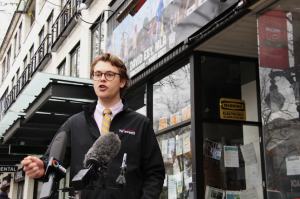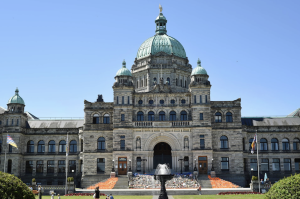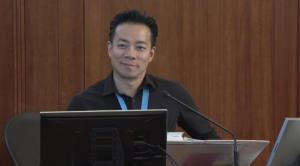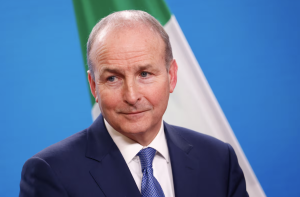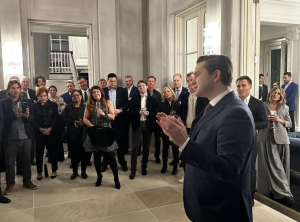Prof. Kathryn Harrison discusses the Carbon Tax as a financial incentive
Professor Kathryn Harrison says the carbon tax is meant to financially incentivise people to reduce their emissions. Regardless of personal consumption, everyone receives the same rebate. While imperfect, no better solution has been proposed.
Prof. Stewart Prest warns against relying on a single poll
Professor Stewart Prest says the recent poll showing “broad dissatisfaction” with the B.C. NDP government in several policy areas is “bad news” for both the NDP and B.C. United. However, the opposition’s vote remains divided, limiting its impact.
“It’s goint to be a fascinating seat to watch” – Prof. Stewart Prest on the fate of West Vancouver-Sea to Sky in B.C.’s election
Professor Stewart Prest highlights the competition for the West Vancouver-Sea to Sky seat with the incumbent BC United MLA retiring. Prest believes the Liberal Party’s recent rebranding, a divided right and a strong NDP campaign could lead to NDP success.
MA Student Calvin San on the danger of Myanmar’s compulsory conscription
Masters Student Calvin San explains that Myanmar’s compulsory conscription will amplify the country’s ongoing human rights crisis and lead to widespread emigration and extortion. It is esential international bodies increase support for locally engaged pro-democracy groups.
Prof. Yves Tiberghien explains how electric vehicles are reshaping Indo-Pacific economies and power dynamics
Professor Yves Tiberghien explains that emerging economies are taking advantage of their late-developer status to increase their economic investments into EVs, strategic subsidies and broader fiscal policies.
Prof. Stewart Prest discusses Mayor Ken Sim’s voting absences
Professor Stewart Prest understands why Vancouverites are concerned that the mayor is missing council votes. However, the mayor has many responsibilities, and the ABC’s majority often ensures policies pass anyway.
Prof. Michael Byers discusses UNRWA funding
Ireland’s Minister of Foreign Affairs intends to press Trudeau about UNRWA funding. Professor Michael Byers doubts Ireland has much sway over Canada’s foreign policy in the Middle East but explains it is reasonable for Canada and Ireland to fill the funding gap caused by other countries withdrawing support.
Prof. Gerald Baier surprised by Pierre Poilievre’s fundraisers
Professor Gerald Baier is suprised by Pierre Poilievre’s choice to host fundraising events in private homes rather than more public venues given Poilievre’s past comments about access to the prime minister and ministers.
Op-ed: Prof Michael Byers discusses Inuit connection to outer space
Professor Michael Byers advocates for hiring more Inuk astronauts in the Canadian Space Agency due to their connection to the Arctic and outer space. Their experiences living in harmony with the unique Arctic seasons means they automatically match the desired psychological profile and as such are uniquely positioned to succeed.
Prof. Gerald Baier explains the age difference in Canadian and American leaders
The average age of Presidents is increasing, while the average age of Prime Ministers is decreasing. Professor Gerald Baier explains this is due to the higher cost of entering elections in the U.S.
